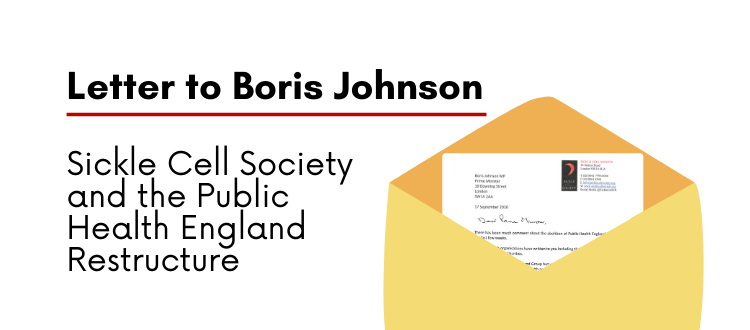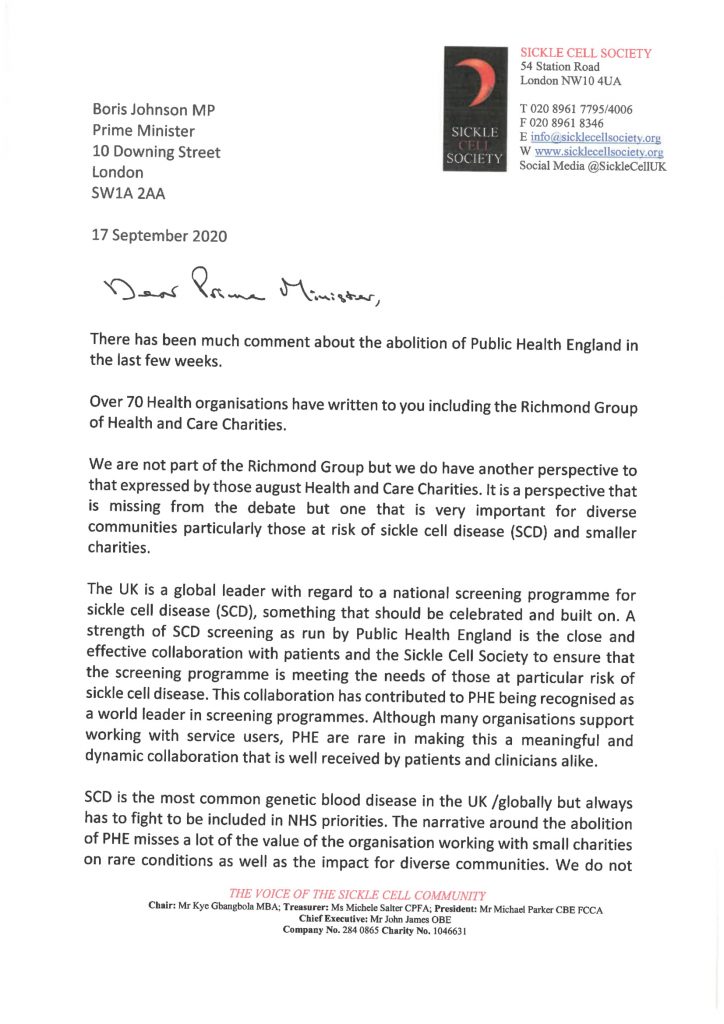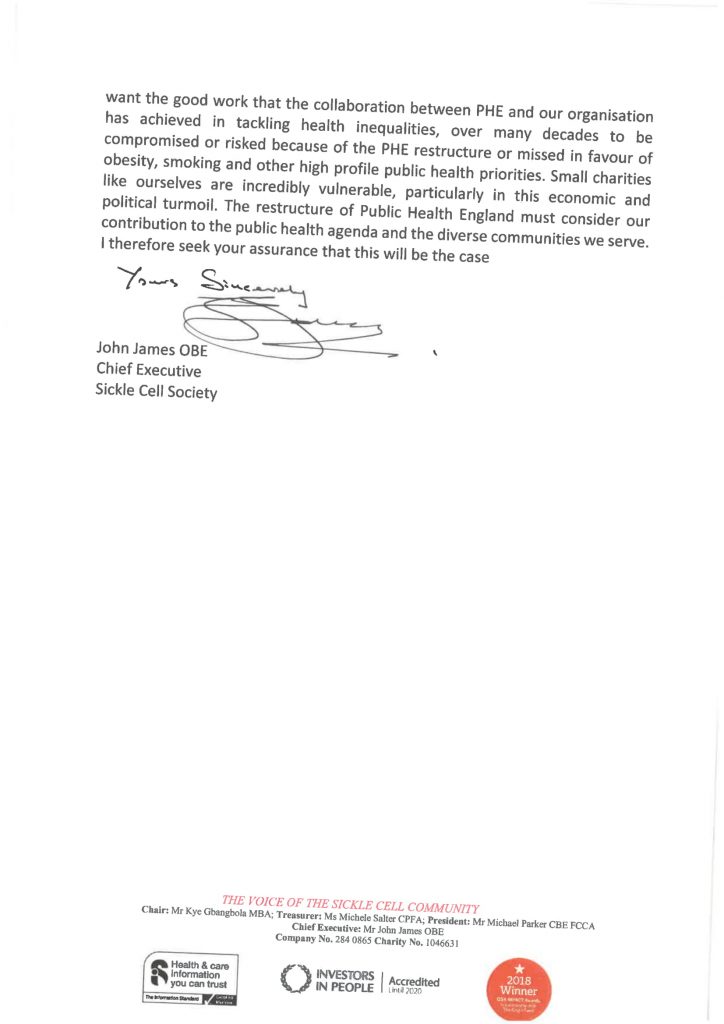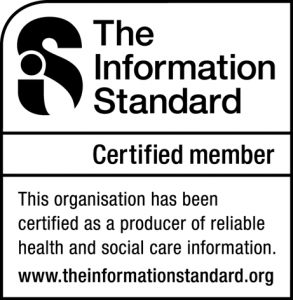SCS letter to Boris Johnson on Public Health England Restructure
Letter to Boris Johnson urges the Prime Minister to not lose smaller charity partnerships in Public Health England restructure.
John James OBE, Chief Executive of the Sickle Cell Society (SCS) has sent a letter to the Prime Minister, urging him to not lose valuable partnerships with smaller charities and the world leading-services those partnerships provide, when considering the restructure of Public Health England (PHE).
Recently, over 70 health organisations have written to the Prime Minister with concerns about the future of PHE. Included in these 70 organisations are some of the largest health charities in England. However, the SCS has written to make sure that smaller charities are also included in all future plans, to ensure that world-leading screening services supporting people living with sickle cell disease and diverse communities, can continue.
The letter explains that sickle cell (an inherited blood disorder affecting around 15,000 people in the UK) is currently a perspective that is missing from the debate despite the UK being a global leader in regards to a national screening programme for sickle cell.
The sickle cell screening programme leads the way for screening programmes across the globe. The programme is run by PHE and its strength comes from the close and effective collaboration with patients and the SCS, as this ensures that the screening programme is meeting the needs of those at particular risk of sickle cell. It is through this collaboration that the programme has been recognised as a world leader.
The letter urges the Prime Minister to ensure that this decades-long collaboration and world leading service is not compromised because of the PHE restructure, in favour of other high profile public health priorities.
Smaller charities play a crucial role in health care in England, providing valuable insight and support for PHE as well as representing diverse communities which are often ignored. It is vital that the restructure of PHE must consider their contribution to the public health agenda.







